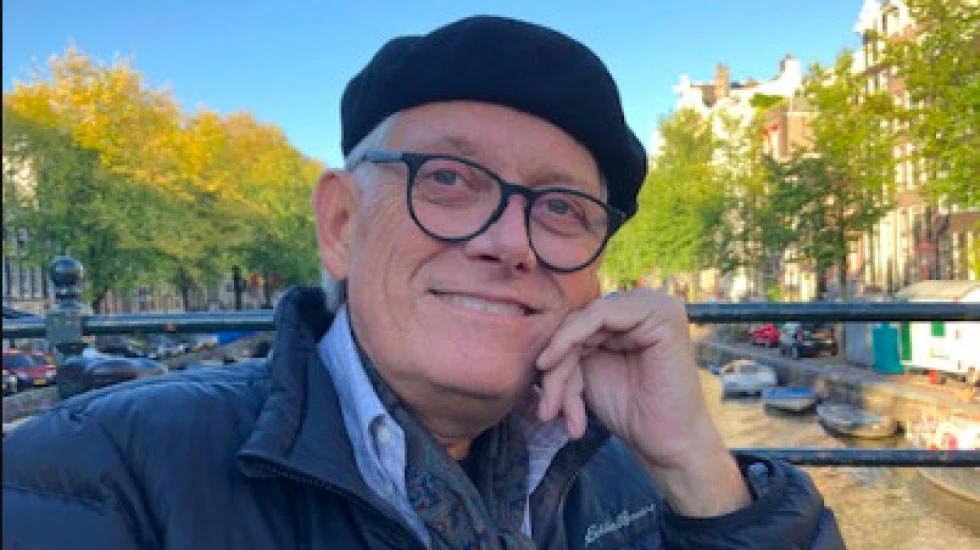
Mark Dewalt was an architect. For him, that meant several things—being a designer, problem solver, tinkerer, renovator, mentor and occasional mischief-maker.
A founding principal of the firm Valerio Dewalt Train, he was the “better call Mark” guy anytime a client or a project was in a tough spot.
There was the time Underwriters Laboratories needed a building in Northbrook for testing appliances. It had to have no electronic interference, so steel construction was bad. David Rasche, principal at Valerio Dewalt, recalled that Mr. Dewalt chatted up a swimming pool manufacturer and came up with a building that was all plastic above the foundation. He borrowed a design for recessed swimming pool lights to use in the building.
“He was the nicest guy in the room,” he said of Mr. Dewalt. “He was definitely a builder of teams. Whatever the problem was, he would find a way to get the parties together and fix it.” He did it with modesty, a quality not always found in architects with a name on the door, and good humor.
Working on a tight turnaround schedule for NBC, Mr. Dewalt led a team that produced a cantilevered skybooth that afforded a great view of the 1996 Democratic Convention in Chicago while announcing the network’s presence in no uncertain terms.
Going back 30 years, Mr. Dewalt handled many assignments for the Merchandise Mart, such as converting its first and second floors into public spaces. His work included the Art on the Mart feature of images projected onto the building’s river-facing façade. “I am not sure there is a floor or corner of that building that he didn’t touch,” Rasche said.
With Joseph Valerio, Mr. Dewalt designed the Ford Calumet Environmental Center, a bird-friendly building in Chicago’s Big Marsh Park that has its own wastewater wetlands system.
Mr. Dewalt died April 29 of heart failure at the age of 70. “He lived his life’s dreams,” which included having his own architectural firm and raising two educated and successful daughters, said his widow, Gail Dewalt. They would have shared their 44th wedding anniversary Friday.
The couple lived in Oak Park for years, where Mr. Dewalt constantly had projects going around the house, and later moved to Westchester. Gail Dewalt recalled how, when they were a young couple, her husband figured out how to override the landlord’s 10 p.m. shutoff of the heating system. Years later, he would design an addition for the family’s getaway, a log cabin in Ellison Bay, Wisconsin, that was so true to the original the tax assessor had to be told what was old and what was new, Gail Dewalt said.
He had an elaborate model train set, with settings he worked on himself, photographing his miniature world to make it look like you were in the landscape. Rasche said he did a lot of that work at night. “I’m not sure he slept a lot,” he said.
Mr. Dewalt was born in Pittsburgh and came to the Chicago area as a boy when U.S. Steel transferred his father here. Gail Dewalt said the family settled in Naperville when farms and fields still surrounded it.
She said Mr. Dewalt’s mother always suspected her son was destined for architecture and design. His mother used to tell how, as a toddler, Mr. Dewalt once wanted a waffle but didn’t know the word, so he drew a picture of a waffle.
He earned his architecture degree at what’s now the University of Illinois Chicago. He co-founded a firm with Jack Train in 1984 and, 10 years later, a merger made it Valerio Dewalt Train. He retired in November 2019.
Asked for Mr. Dewalt’s overriding precept as an architect, Rasche said, “It was probably this: We take our work very seriously. We don’t take ourselves too seriously.”
Mr. Dewalt enjoyed the occasional workplace prank, even when he came back from vacation to find his office filled with balloons, Rasche said. He said Mr. Dewalt got him back by walling Rasche’s office shut, using a partition that looked solid but was easily breached.
It might have been a playful reminder that Mr. Dewalt’s door was always open. “He was always mentoring people. He really brought along a lot of people in this firm, including me,” said Rasche, who has worked with him since 1990.
Other works of Mr. Dewalt included the performance pavilion at Northerly Island, multiple projects for the School of the Art Institute of Chicago and renovation of the former Chicago Title & Trust Building, now called the Burnham Center.
A cancer survivor, Mr. Dewalt was a longtime supporter of the City of Hope in Duarte, California, which gave him its Spirit of Life Award. He served on the alumni board of UIC’s architecture school and on the Frank Lloyd Wright Foundation Restoration Committee in Oak Park.
Services will be private.







